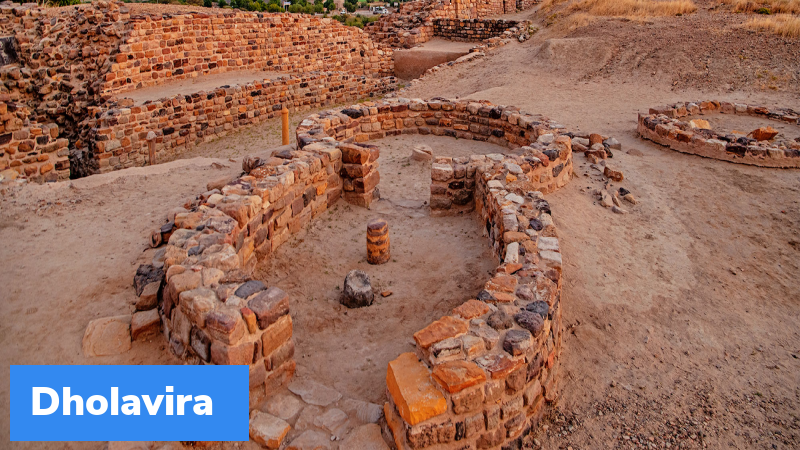Harappan city of Dholavira inscribed in UNESCO’s World Heritage list
On 27th July, 2021, Dholavira the Harappan city which is located in the Kutch district of Gujarat has been named as the 40th Indian site inscribed in UNESCO’s World Heritage list. Dholavira is the first Indus Valley Civilisation site in India that has been included in the list.
Highlights
- The decision to induct this site in the covet list was taken at the 44th UNESCO World Heritage Committee session in Fuzhou, China.
- On 25th July, another Indian site, the Ramappa Temple in Telangana, was added to the list.
- After Rani ki Vav, the walled city area of Ahmedabad and Champaner, Dholavira becomes the fourth site from the state of Gujarat to be added to this list by UNESCO.
- Dholavira is one of South Asia’s most well-preserved urban settlements.
About Dholavira
This city was discovered in the year 1968, and it is located on the Khadir Island in Great Rann of Kutch (GRK) of Kutch district in the state of Gujarat. The city of Dholavira is spread over 22 hectares and it is Indus Valley Civilisation’s fifth largest archaeological site. This city dates back to approximately 3000 BC and it is believed that the city was occupied till 1500 BC. Its name is taken from the Dholavira village located on the Indo-Pakistan border. Locally this site is known as Kotda Timba (the fort mound).
This site is divided into three parts. They are the middle town, the citadel and the lower town. The citadel has detailed structures of fortification. Excavation by the Archaeological Survey of India on this site has revealed that the city houses were constructed using lime stones and all of them were connected to a sewage network. Tanks to store fresh or rainwater has also been found. Copper smelter remains have been found but there no mortal human remains recovered from this site. During excavation ornamental beads, Red earthenware and microlithic tools were also found.
Month: Current Affairs - July, 2021


